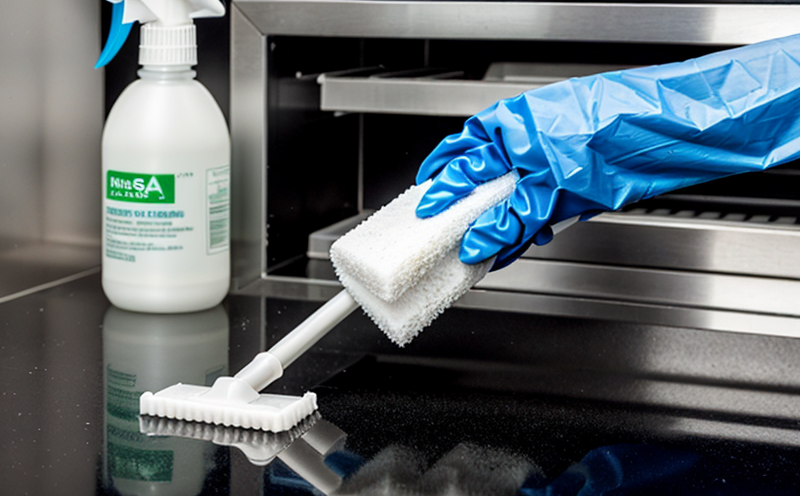ASTM E1428 Plastics Microbiological Efficacy Testing
The ASTM E1428 standard is a critical tool used in the evaluation of the microbiological efficacy of plastics and polymer materials. This testing method assesses how effectively a plastic or polymer material can inhibit microbial growth, which is essential for products intended for use in cleaning and hygiene applications.
ASTM E1428 specifies procedures to measure the antimicrobial activity of a plastic surface by determining its ability to reduce viable microorganisms on the treated surface. The test involves exposing a specimen to a known inoculum of microorganisms, followed by an incubation period under defined conditions. After this time, the surviving microbial population is quantified and compared against controls.
The testing protocol is designed for plastics that are in direct contact with or intended for use on surfaces where hygiene and cleanliness are paramount, such as healthcare facilities, food processing environments, and consumer products like cleaning wipes and sanitizers. This standard ensures that materials used in these applications meet the necessary standards of microbial safety.
The ASTM E1428 process involves several key steps:
- Preparation of the specimen according to the specified guidelines
- Inoculation with a standardized inoculum of microorganisms
- Incubation under controlled conditions for an appropriate period
- Sampling and analysis of surviving microbial populations
The acceptance criteria for ASTM E1428 are based on the reduction in viable microorganism counts. The standard specifies minimum reductions required to pass the test, which vary depending on the type of microorganisms being tested (e.g., Gram-positive bacteria, Gram-negative bacteria, yeasts, and molds).
Understanding the scope and application of ASTM E1428 is crucial for ensuring that plastics used in cleaning and hygiene applications are safe and effective. This standard plays a vital role in maintaining public health by guaranteeing that materials meet stringent microbiological safety standards.
Industry Applications
- Cleaning Products: Testing for antimicrobial properties of plastic containers, caps, and applicators used in cleaning products.
- Medical Devices: Evaluating the microbiological efficacy of plastic components used in medical devices that come into contact with bodily fluids.
- Food Packaging: Assessing the safety of food packaging materials to prevent microbial contamination during storage and transport.
- Consumer Products: Ensuring that household cleaning products, such as sponges and cloths, are effective in inhibiting microbial growth on surfaces.
The ASTM E1428 standard is widely used across various industries where hygiene and cleanliness are critical. Its application ensures that the plastic materials used meet the necessary standards for microbiological safety, thereby protecting public health.
Quality and Reliability Assurance
- Consistency: Ensuring consistent performance of antimicrobial properties across different batches of plastic material.
- Reliability: Guaranteeing that the plastic materials used in cleaning and hygiene applications are reliable over time, maintaining their effectiveness against microorganisms.
The ASTM E1428 testing process provides a robust framework for quality control. By adhering to this standard, manufacturers can ensure that their products consistently meet or exceed microbiological safety requirements. This not only enhances the reputation of the product but also builds trust with consumers who rely on these materials for hygiene and cleaning.
The use of ASTM E1428 testing helps in identifying potential issues early in the development process, allowing for necessary adjustments to be made before products reach the market. This proactive approach ensures that only high-quality, reliable plastic materials are used in cleaning and hygiene applications, thus maintaining the highest standards of safety and effectiveness.





